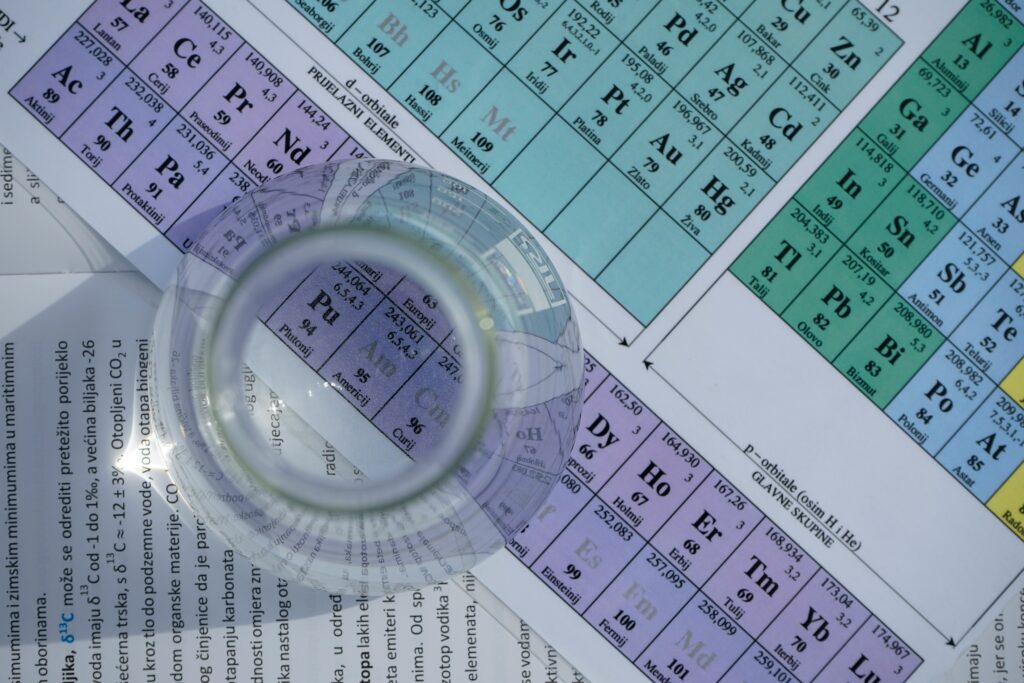Are you finding HSC Chemistry difficult to keep up with? You’re not alone.
From abstract theories and mathematical applications to lab skills and exam stress, HSC Chemistry is often one of the most demanding science subjects. Many students across Sydney—particularly in Punchbowl, Bankstown, and Greenacre—seek extra support through HSC Chemistry tutoring to confidently navigate the syllabus and boost their marks.
In this blog, we’ll break down why Chemistry is challenging, walk you through both the Year 11 and Year 12 modules, and show how expert tutoring can help you master every component of the course.
Why Is HSC Chemistry So Challenging?
HSC Chemistry, governed by the NESA Stage 6 syllabus, requires students to demonstrate not just theoretical understanding but analytical, numerical, and investigative skills.
Key Challenges:
- Abstract Concepts – Students must visualise atomic structures, reaction pathways, and molecular geometry.
- Mathematical Reasoning – Core to topics like stoichiometry, equilibrium constants, pH, and titration analysis.
- Application of Theory – Students must interpret and extrapolate data from practical investigations and chemical equations.
- Heavy Content Load – A dense syllabus with technical vocabulary, complex mechanisms, and reaction summaries.
- Exam Pressure – High-stakes assessments demand precise responses within strict time constraints.
Year 11 Chemistry Modules (Preliminary Course)
The Preliminary course lays the foundation for success in the HSC. Here’s how it’s structured across four modules:
Term 1: Properties and Structure of Matter
This module focuses on the structure of matter at the atomic and molecular level.
- Atomic theory: electrons, protons, neutrons, and isotopes
- The Periodic Table: trends in atomic radius, ionisation energy, and electronegativity
- Types of bonding: ionic, covalent, and metallic
- Intermolecular forces: dispersion, dipole-dipole, and hydrogen bonding
- Introduction to nanomaterials
🔍 Tutoring Tip: Tutors use molecular models and digital simulations to make abstract concepts tangible.
Term 2: Introduction to Quantitative Chemistry
This module introduces core calculations used throughout chemistry.
- The mole concept and Avogadro’s number
- Molar mass and percentage composition
- Empirical and molecular formulae
- Balanced equations and stoichiometric calculations
- The Law of Conservation of Mass
🔍 Tutoring Tip: Students are guided through step-by-step problem solving and strategies for unit conversions and limiting reagent identification.
Term 3: Chemical Reactions and Energy
Here, students explore different types of reactions and the energy changes involved.
- Synthesis, decomposition, combustion, and precipitation reactions
- Enthalpy, exothermic vs. endothermic processes
- Activation energy and reaction profiles
- Energy changes in chemical systems
🔍 Tutoring Tip: Tutors help students connect thermodynamic theory with visual reaction models and lab observations.
Term 4: Atomic Structure and Periodicity
This module returns to the atom but with a more detailed analysis of electronic structure.
- Electron configurations and orbital diagrams
- Atomic emission spectra
- Flame tests and quantum theory
- Periodic trends and chemical reactivity
🔍 Tutoring Tip: Students learn to correlate experimental results with theory using spectroscopy and flame colour tests.
Year 12 Chemistry Modules (HSC Course)
The HSC course builds on the Year 11 foundation with greater complexity and real-world applications.
Term 1: Equilibrium and Acid/Base Reactions
Students investigate reversible reactions and pH dynamics.
- Chemical equilibrium and Le Chatelier’s Principle
- Equilibrium constants (Kc and Kp)
- Acids, bases, and the pH scale
- Bronsted-Lowry theory and conjugate pairs
- Strong vs. weak acids and bases
🔍 Tutoring Tip: Tutors guide students through ICE tables, pH calculations, and practical equilibrium setups.
Term 2: Acid/Base Titration and Applications
This module blends theory with analytical techniques.
- Titration curves and indicators
- Neutralisation reactions
- Volumetric analysis calculations
- Buffer solutions and real-world applications (e.g. in blood or industry)
🔍 Tutoring Tip: Tutors help students perform accurate titration calculations and prepare for practical assessments with mock experiments.
Term 3: Organic Chemistry
One of the most content-heavy and application-driven modules.
- Hydrocarbons: alkanes, alkenes, alkynes
- Functional groups: alcohols, aldehydes, ketones, esters, amines, amides
- Polymerisation and biomolecules
- Reaction pathways and flowcharts
- Isomerism: structural, geometric, and optical
🔍 Tutoring Tip: Tutors break down complex organic mechanisms and help students map out synthesis pathways using guided flowcharts.
Term 4: Chemical Synthesis and Design
The final module introduces industrial and research applications.
- Designing and conducting chemical synthesis
- Yield, purity, and green chemistry principles
- Spectroscopic techniques (IR, MS, UV-Vis, NMR)
- Qualitative and quantitative analysis
🔍 Tutoring Tip: Students learn to interpret real data and prepare high-level HSC practical reports and depth study projects.
How Can Tutoring Help?
1. Personalised Guidance
Whether you’re struggling with calculations or seeking extension work, tutoring in Bankstown, Punchbowl, and nearby suburbs provides tailored support.
2. Mastering Exam Techniques
Tutors train students in:
- Past paper analysis
- Time management
- PEEL/CER writing structure for extended responses
- Avoiding common errors
3. Depth Study Support
From hypothesis creation to data analysis and report writing, tutors provide expert advice to help students score highly in their independent investigations.
4. Practical Skills
Tutoring equips students with:
- Accurate lab technique
- Error identification
- Data interpretation and graphing
Maximise Your Chemistry Potential
If you’re aiming to achieve your personal best in Chemistry, expert tutoring can make all the difference. Whether you’re in Year 11 building foundations or in Year 12 preparing for the final exam, structured and engaging support is essential.
At Kalibre Education, we specialise in HSC Chemistry tutoring in Sydney, Punchbowl, Bankstown, Greenacre, and surrounding suburbs, helping students:
✅ Build confidence
✅ Improve exam performance
✅ Learn smarter, not harder 📞 Book a free demo lesson today to experience the Kalibre difference firsthand.



